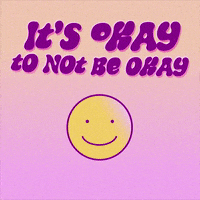When
someone asks how you are, how do you reply? If you stop to think a little about
this, there are a wide range of human emotions which escape our understanding.
Confining them to a single word is almost impossible. In fact, emotions and
feelings are the salt and pepper of life and each language has not only words
but also diverse idiomatic expressions to try to define the different moods
that can be found in the complex and fascinating world of feelings.
The ability
to express your emotions is one of the first competencies you learn when
studying another language. This allows us to express ourselves, find new
friends, and strengthen ties. What about in English? How many idioms do you
know to describe your humour in this language?
Let’s look
at some idiomatic expressions to describe your humour that you can use when
someone asks “How are you?” Some may be the same as in your native tongue,
while others can be found only in the English language. Learn them to enrich
your vocabulary and to make it more expressive.
1. On cloud nine
If you are “in the clouds”, this indicates extreme happiness.
Example:
The bride was on cloud nine.
2. On pins and needles
Literally meaning on pins and needles, this indicates a state of suspense and tension.
Example:
Please, tell me what happened. I am on pins and needles.
3. Mixed feelings
This expression literally means what it says. It conveys a condition in which there are diverse feelings happening at the same time which can contradict each other.
Example:
I don’t know how I feel about moving. I have mixed feelings. I am happy, but at the same time, I feel sad and anxious.
4. Fed up
This phrasal verb indicates a condition of frustration in relation to a situation that has truly become untenable.
Example:
I am fed up with the situation at work.
5. Chip on his shoulder
This metaphorical expression is used to describe a behaviour that denotes the discomfort and anger of someone who has been treated unjustly.
Example:
Martin came back very upset from school because of the mark he received. He acted as if he had a chip on his shoulder.
6. Go to pieces
If you go to pieces, you fall apart. This phrase indicates deep pain.
Example:
Mary went to pieces when she heard the news.
7. Shaken up
This phrase means you are shocked. It indicates the dazed feeling after strong, unforeseen, or unexpected news.
Example:
I feel a bit shaken up after having heard about the accident.
8. Feeling under the weather
This expression is linked to the British climate and the seasonal diseases that winter can bring. It indicates a state of general malaise and can be translated as not feeling good. Mentioning the weather brings to mind the seasonal discomfort and cold that a humid and rainy climate carries with it.
Example:
Sorry that you are feeling under the weather.












I like your idioms, I am going to practice and applying them.
ResponderBorrar